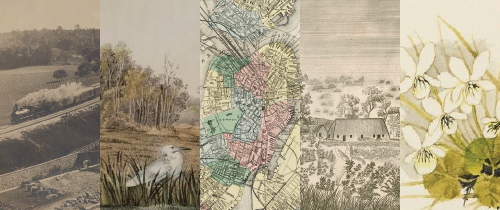Earthquakes and End Times: Global Disasters and Apocalyptical Predictions in the Early Modern English Atlantic

MHS Event
Author: Jennifer Egloff, NYU Shanghai
Comment: Conevery Bolton Valencius, Boston College
This is an online event.
Throughout early modern Europe and the Atlantic World, individuals recorded details of earthquakes in diaries and letters, contemplated meanings in sermons, and learned about distant disasters via broadsides and pamphlets. Highlighting the contemporary providential worldview, this paper argues that numbers contained in earthquake reports were particularly significant. By recording precisely when earthquakes occurred—and making correlations with distant earthquakes—individuals interpreted God’s messages apocalyptically, arguing that particular earthquakes correlated with those described in Revelation. Some people combined this with additional chronological information to predict when Judgment Day would occur. This paper explores the extent to which New Englanders were unique in their providential and apocalyptical interpretations of global disasters, compared to their Atlantic counterparts.
The Environmental History Seminar invites you to join the conversation. Seminars bring together a diverse group of scholars and interested members of the public to workshop a pre-circulated paper. Learn more.
Purchasing the $25 seminar subscription gives you advanced access to the seminar papers of all seven seminar series for the current academic year. Subscribe at www.masshist.org/research/seminars. Subscribers for the current year may login to view currently available essays.
Online Event
The virtual seminar begins at 5:00 PM and will be hosted on the video conference platform, Zoom. Registrants will receive a confirmation message with attendance information.
